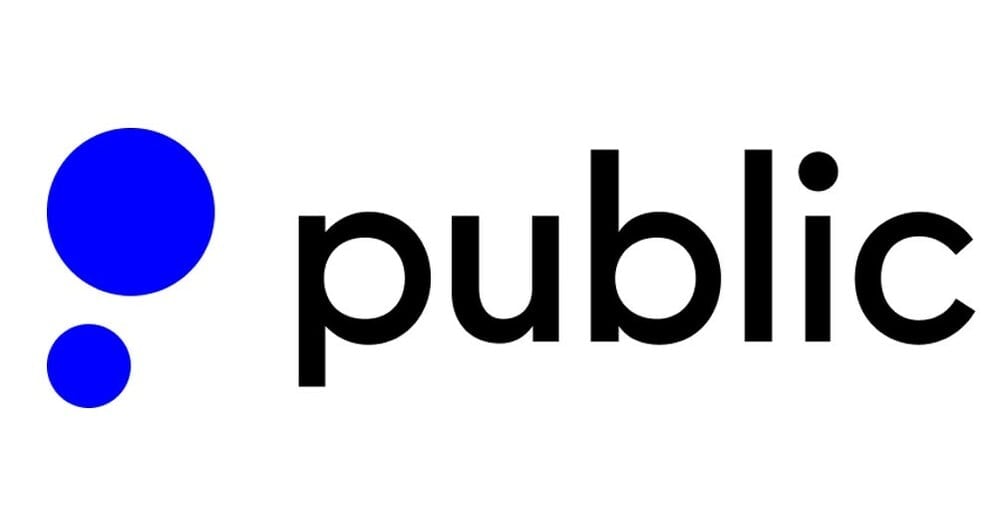Best Investing Apps of May 2024
Investing apps allow you to manage your portfolio and buy or sell investments via your phone. Here are NerdWallet's top picks for the best investing apps available right now.
Many or all of the products featured here are from our partners who compensate us. This influences which products we write about and where and how the product appears on a page. However, this does not influence our evaluations. Our opinions are our own. Here is a list of our partners and here's how we make money.
The investing information provided on this page is for educational purposes only. NerdWallet, Inc. does not offer advisory or brokerage services, nor does it recommend or advise investors to buy or sell particular stocks, securities or other investments.
High-quality investment apps like the ones we've highlighted below allow you to monitor your investments and make investing decisions on the go. All of the brokers on our list of the best brokers have well-reviewed investment apps that are suitable for beginners and advanced investors alike. But if an account's mobile experience is most important to you, we've narrowed down that list to determine the best investing apps.
» Looking to trade stocks or options? Consult our list of the best stock apps instead.
The investment apps that made our list are intentional about ensuring users and the mobile app experience are top of mind. They have robust customer support options and positive user reviews in mobile app stores, but our analysis also factors in investment costs, account fees and account minimum to invest. We also hands-on test every app we review, including funding an account and placing trades through the broker's platform.
High-quality investment apps like the ones we've highlighted below allow you to monitor your investments and make investing decisions on the go. All of the brokers on our list of the best brokers have well-reviewed investment apps that are suitable for beginners and advanced investors alike. But if an account's mobile experience is most important to you, we've narrowed down that list to determine the best investing apps.
» Looking to trade stocks or options? Consult our list of the best stock apps instead.
The investment apps that made our list are intentional about ensuring users and the mobile app experience are top of mind. They have robust customer support options and positive user reviews in mobile app stores, but our analysis also factors in investment costs, account fees and account minimum to invest. We also hands-on test every app we review, including funding an account and placing trades through the broker's platform.
Best Investing Apps
| Broker | NerdWallet rating | Fees | Account minimum | Promotion | Learn more |
|---|---|---|---|---|---|
 J.P. Morgan Self-Directed Investing Learn more on J.P. Morgan's website | $0 per trade | $0 | Get up to $700 when you open and fund a J.P. Morgan Self-Directed Investing account with qualifying new money. | Learn more on J.P. Morgan's website | |
 Fidelity Learn more on Fidelity's website | $0 per trade for online U.S. stocks and ETFs | $0 | None no promotion available at this time | Learn more on Fidelity's website | |
 Charles Schwab Learn more on Charles Schwab's website | $0 per online equity trade | $0 | None no promotion available at this time | Learn more on Charles Schwab's website | |
 Interactive Brokers IBKR Lite Learn more on Interactive Brokers' website | $0 per trade | $0 | None no promotion available at this time | Learn more on Interactive Brokers' website | |
 Webull Learn more on Webull's website | $0 per trade | $0 | Get up to 75 free fractional shares (valued up to $3,000) when you open and fund an account with Webull. | Learn more on Webull's website |
$0
per trade
$0
Get up to $700
when you open and fund a J.P. Morgan Self-Directed Investing account with qualifying new money.
Pros
Easy-to-use platform.
$0 commissions.
App connects all Chase accounts.
No account minimum.
Cons
Limited tools and research.
Portfolio Builder tool requires $2,500 balance.
Low interest rate on uninvested cash.
Why We Like It
J.P. Morgan Self-Directed Investing is a clear-cut investment platform that is great for beginners looking to learn how to buy and sell investments. More advanced investors, however, may find it lacking in terms of available assets, tools and research. INVESTMENT PRODUCTS: NOT A DEPOSIT • NOT FDIC INSURED • NO BANK GUARANTEE • MAY LOSE VALUE
$0
per trade for online U.S. stocks and ETFs
$0
None
no promotion available at this time
Pros
Commission-free stock, ETF and options trades.
Large selection of research providers.
Strong customer service.
Expense-ratio-free index funds.
Highly rated mobile app.
High interest rate on uninvested cash.
Cons
Relatively high broker-assisted trade fee.
Why We Like It
Fidelity offers $0 trading commissions, a selection of more than 3,300 no-transaction-fee mutual funds and top-notch research tools and trading platform. Its zero-fee index funds and strong customer service reputation are just icing on the cake.
$0
per online equity trade
$0
None
no promotion available at this time
Pros
Four trading platforms with no minimum or fees.
Above-average mobile app.
Extensive research.
Large fund selection.
Commission-free stock, options and ETF trades.
Cons
Low interest rate on uninvested cash.
Why We Like It
Charles Schwab has earned its strong reputation: The broker offers high-quality customer service, four free trading platforms, a wide selection of no-transaction-fee mutual funds and $0 commissions for stocks, ETFs and options.
$0
per trade
$0
None
no promotion available at this time
Pros
Large investment selection.
Strong research and tools.
Over 19,000 no-transaction-fee mutual funds.
High order execution quality.
Cons
High minimum to earn interest on uninvested cash.
Why We Like It
Interactive Brokers' IBKR Lite is a strong option for frequent traders: The broker offers international trade capabilities, no stock-trading commission and a quality trading platform.
$0
per trade
$0
Get up to 75 free fractional shares (valued up to $3,000)
when you open and fund an account with Webull.
Pros
Low costs.
Easy-to-use platform.
Advanced tools.
Access to cryptocurrency.
High interest rate on uninvested cash.
High order execution quality.
Cons
No mutual funds.
Thin educational support.
Why We Like It
Webull will appeal to the mobile-first generation of casual investors with its slick interface for desktop and mobile apps, but the brokerage also delivers an impressive array of tools for active traders. However, its relatively weak educational content may leave true beginners in the lurch, and it lacks access to a few common asset classes.
4.7
/5Reviewed in: Oct. 2023
Period considered: Aug. - Oct. 2023
on Acorns' website
AD
Paid non-client promotion
$3 - $5
per month
$0
$10 Sign Up Bonus
Pros
Automatically invests spare change.
Cash back at select retailers.
Educational content available.
Cons
High fee on small account balances.
Why We Like It
If you want to make the most of your spare change and get the occasional retailer kickback, there’s really no better place to do that. The automatic roundups at Acorns make saving and investing easy, and most investors will be surprised by how quickly those pennies accumulate. The downside? At small balances, Acorns fees can cut into or completely wipe away investment returns.
$0
per trade
$0
Up to $1,000
in free stock for users who sign up via mobile app
Pros
Commission-free stock, ETF and options trades.
Fractional shares available.
Free financial counseling.
IPO access.
No account minimum.
Cons
Low interest rate on uninvested cash.
Why We Like It
SoFi Active Investing's $0 trading commission, fractional shares and $1 account minimum are attractive to new investors. More advanced investors will appreciate the company's wide mutual fund selection and IPO access.
$0
$0
None
no promotion available at this time
Pros
Rebates for trading options.
Impressive selection of alternative assets.
Easy-to-use signup and trading interface.
Cons
No mutual funds.
No margin trading or futures trading.
Lack of tools (e.g. customizable screeners) and account types (e.g. IRAs).
Want to compare more options? Here are our other top picks:
More about investing apps
Which features are most important when choosing the best investing app?
The most important thing to consider when choosing an investing app is how you're going to use it — if you're a frequent stock trader, you may require different functionality than someone who simply wants to monitor the performance of their long-term investments. Here's a Nerdy overview of the features you might consider when choosing the best app for you:

How much money do you need to start investing through an app?
Shockingly little. Thanks to micro-investing apps like Acorns and Stash, you can kick-start an investment portfolio with small amounts of money — just your spare change, in fact. Acorns, for example, sweeps a linked credit or debit card account, rounds up purchases to the nearest dollar and invests the change. Stash offers a similar opt-in feature that rounds up purchases to deposit money in a user's account.
Beyond the micro-investing apps, the amount of money you’ll need to begin investing after you open your account depends on the assets you intend to buy. Individual stock shares range from as little as a few dollars to hundreds or even thousands of dollars per share. Mutual funds often have minimums, but exchange-traded funds (ETFs) and index funds are more accessible to smaller investments.
Many of NerdWallet’s picks for best apps have no account minimum, so you can open an account right away and entirely online. Here’s more on what a brokerage account is and how to open one.
What can you trade through an investing app?
The mobile trading experience varies by broker — and so does the range of available investments. Typically, an app from a traditional online broker will offer the largest range of investment options, while smaller apps or start-ups tend to limit their selection.
Which investing app is best for stock traders?
Many of the apps above are good choices for stock traders, but to see a narrower list focused specifically on trading, check out our picks for the best stock apps.
What is the best investment app for beginners?
For new investors, working with a larger, established brokerage like Fidelity or Charles Schwab is often a good fit — their apps rate highly, and they also offer higher levels of educational support and strong customer service. You might also consider an investing app from a robo-advisor. Robo-advisors build and manage portfolios for you, often using ETFs, so you don't have to choose any investments yourself.
While the idea of buying individual stocks might be exciting, building a portfolio of stocks requires a fair amount of research and discipline. ETFs offer instant diversification in that they contain shares of multiple companies (dozens, even) like a mutual fund, but trade like individual stocks.
If buying individual shares of companies is something you’d like to do, see our guide on how to buy stocks.
Are investing apps safe?
Just as FDIC insurance insures bank accounts, SIPC insurance insures the money you have in your brokerage account (or robo-advisor account) up to $500,000. This includes investing apps. $250,000 of that total can be applied to protect cash that you haven’t yet invested. All of NerdWallet’s picks for best apps are members of the SIPC. (Here’s more on SIPC insurance and what it does and doesn’t protect.)
Some of the investment apps listed here also offer bank or savings accounts, which are FDIC insured against loss.
Investment apps typically also use industry-standard security measures, including two-factor authentication, hashing of passwords and encryption of personal information.
Can you lose money with an investing app?
That largely depends on how you invest your money within the app, rather than the app itself. Like traditional brokers, your investment decisions can determine how much money you gain or lose and how "safe" your money is overall. Some investments carry more risk than others — for example, individual stocks or cryptocurrencies are known to be riskier than bonds or Treasurys.
The bottom line: No matter what app or investment company you're using, it's important to align your investment selections with your risk tolerance and time horizon. Generally speaking, many financial advisors suggest not investing money you need within the next five years — most investments should be considered long-term.
Last updated on April 19, 2024
Methodology
NerdWallet’s comprehensive review process evaluates and ranks the largest U.S. brokers by assets under management, along with emerging industry players. Our aim is to provide an independent assessment of providers to help arm you with information to make sound, informed judgements on which ones will best meet your needs. We adhere to strict guidelines for editorial integrity.
We collect data directly from providers through detailed questionnaires, and conduct first-hand testing and observation through provider demonstrations. The questionnaire answers, combined with demonstrations, interviews of personnel at the providers and our specialists’ hands-on research, fuel our proprietary assessment process that scores each provider’s performance across more than 20 factors. The final output produces star ratings from poor (one star) to excellent (five stars).
For more details about the categories considered when rating brokers and our process, read our full methodology.
To recap our selections...





